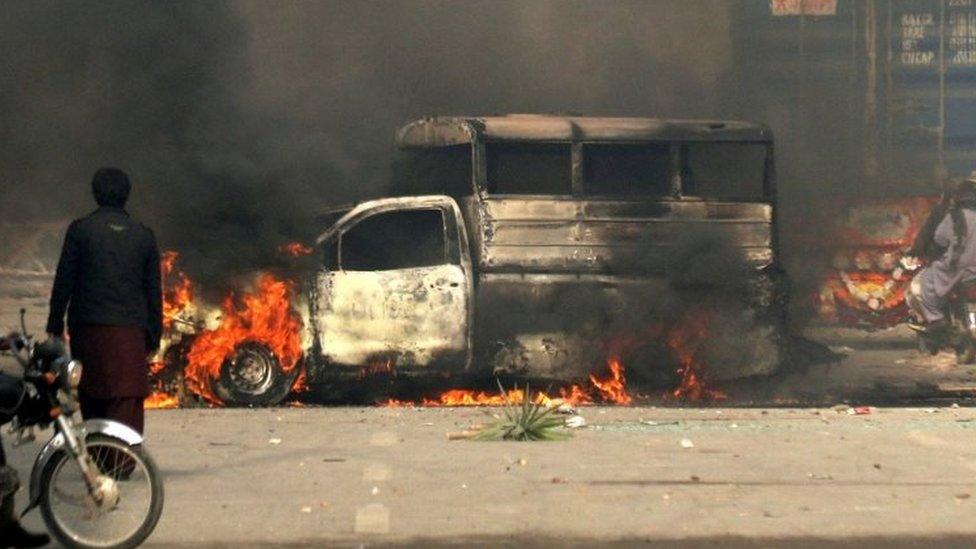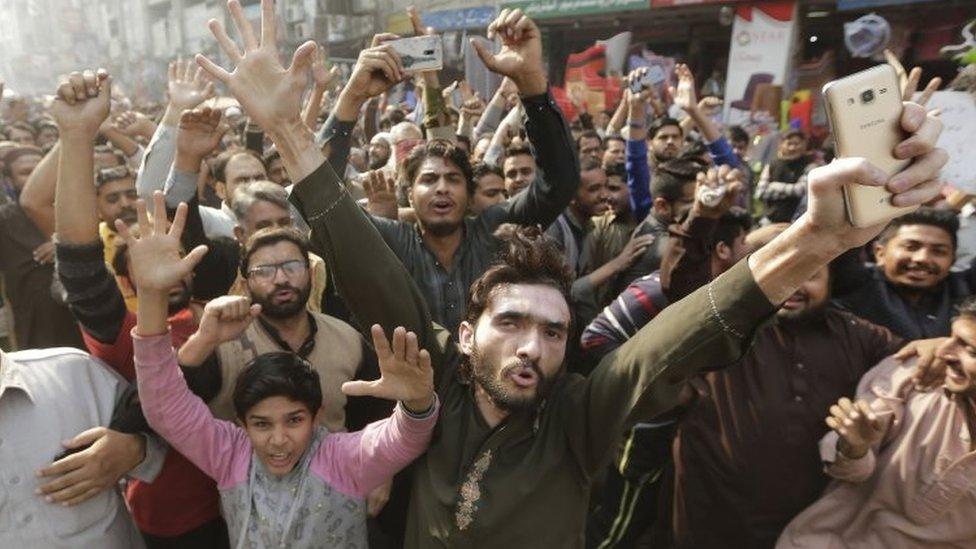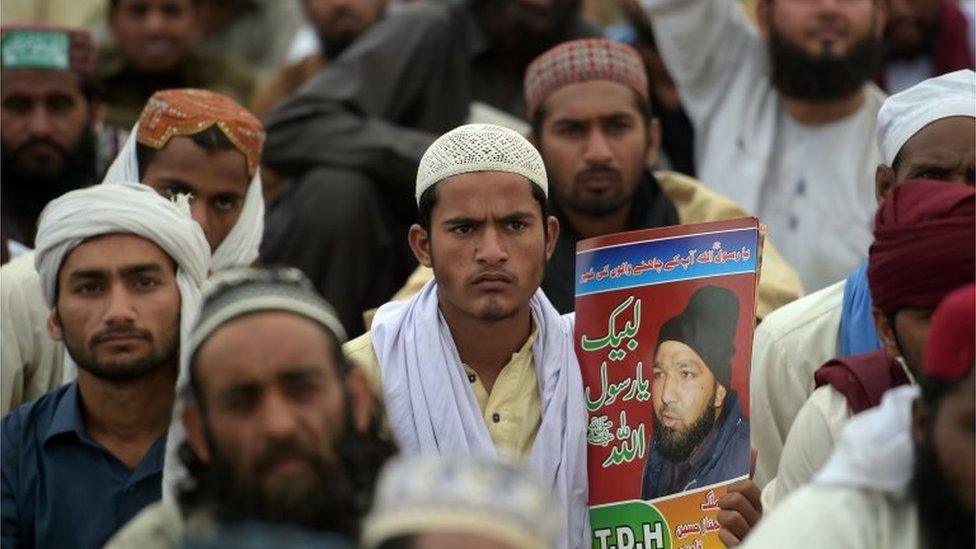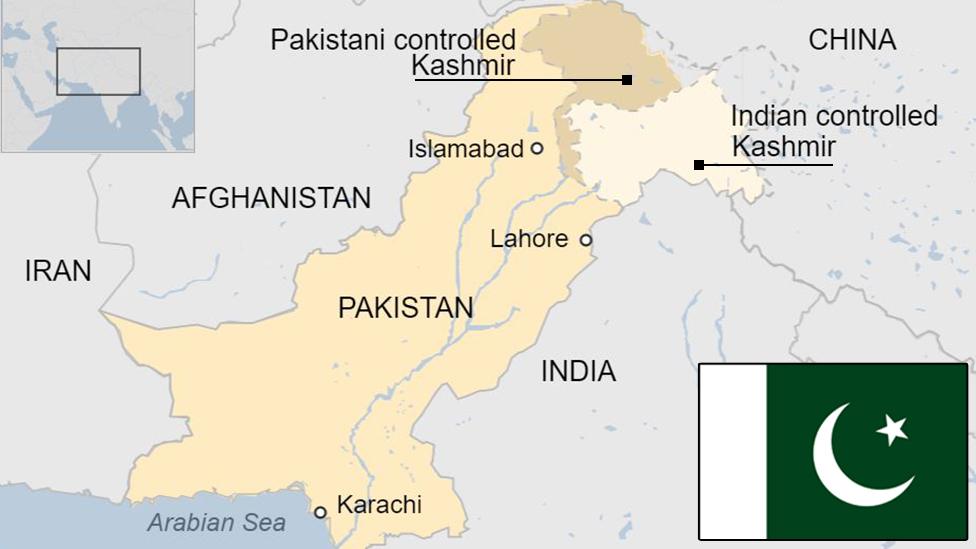Pakistan army called on to stop 'blasphemy' clashes in Islamabad
- Published
Police fired tear gas and rubber bullets to disperse protesters
Pakistan's government has called for troops to be deployed in the capital, Islamabad, after violence broke out during protests by Islamists.
About 200 people were injured when security forces tried to disperse an Islamist sit-in at the Faizabad Interchange - a key highway.
Several deaths have been reported.
The protesters have been blocking the highway for several weeks, demanding the sacking of Law Minister Zahid Hamid whom they accuse of blasphemy.
Pakistani media report that demonstrators also broke into the minister's residence in Punjab province. Mr Hamid and his family were not in the building.
The protests have spread to other cities, including Lahore and the southern port of Karachi.

About 200 people were injured in Saturday's clashes
The Pakistani government asked the army to deploy in Islamabad on Saturday evening.
The interior minister said the order was issued at the request of the city authorities, who were not able to clear the sit-in.
There was no immediate comment from the Pakistani military.

Protesters want Pakistan's law minister to be sacked
Earlier on Saturday, security forces used tear gas and rubber bullets to try to disperse the demonstrators, Pakistani media report, but were met with rocks and tear gas shells.
About 8,500 elite police and paramilitary forces took part in the operation to clear the Faizabad Interchange. The crackdown was later suspended.
Protesters said four of their activists were killed, but police said there were no deaths, Reuters reports.
However, officials are quoted in other reports confirming that several people were killed. Many of those injured are security personnel.
The request for the military deployment came after hundreds more demonstrators turned up unexpectedly, forcing the police to retreat.
At one point, the authorities took all private television news channels off air, apparently out of concern that the live coverage of the police action could inflame religious sentiments.
The protesting Islamists, from the hardline Tehreek-i-Labaik Ya Rasool Allah Party, want the law minister to be sacked for omitting a reference to the Prophet Muhammad in a new version of the electoral oath.
The minister has since apologised saying it was a clerical error.
- Published30 March 2016

- Published15 March 2024
